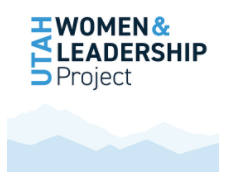On Wednesday afternoon, a webinar on a very important topic all over the world, and particularly in Utah, was hosted. This webinar was presented by the joining of the Utah State University Women & Leadership Project (UWLP) as well as USU Extension.
The Spring Women’s Leadership Forum “Stopping Violence Against Utah Girls and Women” had a panel of four special guests to speak on all things abuse. This panel included Liliana Olvera-Arbon, the Executive Director of Utah’s Coalition Against Sexual Assault as well as Jennifer Campbell, the Executive Director of South Valley Services and the former chair of the Utah Domestic Violence Coalition. Also included was Annie Fukushima, who is the Co-Principal Investigator and Project Lead, Gender Based Violence Consortium and Assistant Professor of Ethnic Studies at the University of Utah.
These women were joined by the final panelist, Chris Yadon, who is the Executive Director of the Younique Foundation. Together, they brought a vast array of knowledge and information regarding sexual, domestic and other types of abuse, especially prevalent to the state of Utah. Each panelist gave a brief introduction before diving into the topic at hand.
Yadon stated that the Center for Disease Control (CDC) conducts a questionnaire aimed toward high school students periodically that focuses specifically on Utah high school girls, 11.3% of which report being raped before they graduate. This report ranges from early childhood to graduation. This number is higher than the national average historically.
Furthermore, focusing on sexual assault, 21.2% of Utah girls have reported being sexually assaulted within the last 12 months, which is also significantly higher than the national average. Since the outbreak of COVID-19, it was reported that front-line workers have submitted reports that indicate that all types of violence against women and girls have intensified.
It was also reflected that when there is data, it is just the tip of the iceberg of what is known. A lot of victims do not report or acknowledge that what they went through is abuse or violence. Though fatalities were on a downward trend since 2017, they went back up in 2020. A rise of domestic violence was noticed in conjunction with isolation due to quarantining.
The panelists discussed that there is not just one way to respond to violence and response needs to take place in many places, which can make it overwhelming. For children, long-term recovery focuses on the symptoms that manifest long after. Child sexual abuse victims see strong manifestation in their 30s or 40s.
Campbell remarked that there needs to be a greater investment in prevention as well as learning how to stretch the dollar and grow the programs by also building a good network. It has been noticed that states that have more women in their state legislature give more to abuse assistance programs.
When the topic of getting officials more involved was raised, viewers were encouraged to reach out to legislation and let them know what is important. Having your voice heard brings the attention straight to those in the officials seats. “Well-intentioned people: we need you,” stated Olvera-Arbon.
Toward the end of the presentation, Yadon said that the only way to solve sexual violence is to stop the violent person by figuring out how and why they are violent in their life and working to help them improve or reverse their behavior. It was reported that up to 50% of child sexual abuse is perpetrated by an older minor.
With this in mind, Yadon stated that being an engaged parent or primary caregiver is critical to prevention. While traditionally parents have not been willing to believe their child may engage in violent acts, they are seeing more parents coming forward and being willing to focus on this difficult topic. The parents are key to targeting the issues.
Fukushima then said that members of the community need to be more comfortable with talking about violence and that victims should not be ashamed of what they have gone through.

